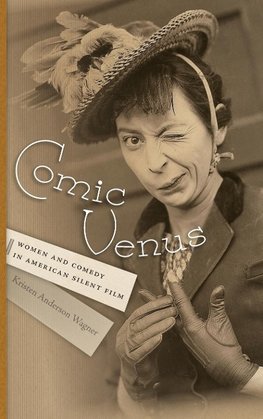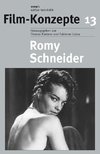
-
 Anglický jazyk
Anglický jazyk
Comic Venus
Autor: Kristen Anderson Wagner
For many people the term "silent comedy" conjures up images of Charlie Chaplin's Little Tramp, Buster Keaton's Stoneface, or Harold Lloyd hanging precariously from the side of a skyscraper. Even people who have never seen a silent film can recognize these... Viac o knihe
Na objednávku, dodanie 2-4 týždne
95.13 €
bežná cena: 105.70 €
O knihe
For many people the term "silent comedy" conjures up images of Charlie Chaplin's Little Tramp, Buster Keaton's Stoneface, or Harold Lloyd hanging precariously from the side of a skyscraper. Even people who have never seen a silent film can recognize these comedians at a glance. But what about the female comedians? Gale Henry, Louise Fazenda, Colleen Moore, Constance Talmadge-these and numerous others were wildly popular during the silent film era, appearing in countless motion pictures and earning top salaries, and yet, their names have been almost entirely forgotten. As a consequence, recovering their history is all the more compelling given that they laid the foundation for generations of funny women, from Lucille Ball to Carol Burnett to Tina Fey. These women constitute an essential and neglected sector of film history, reflecting a turning point in women's social and political history. Their talent and brave spirit continues to be felt today, and Comic Venus: Women and Comedy in American Silent Film seeks to provide a better understanding of women's experiences in the early twentieth century, and to better understand and appreciate the unruly and boundary-breaking women who have followed.
The diversity and breadth of archival materials explored in Comic Venus illuminate the social and historical period of comediennes and silent film. In four sections, Kristen Anderson Wagner enumerates the relationship between women and comedy, beginning with the question of why historically women weren't seen as funny or couldn't possibly be funny in the public and male eye, a question that persists even today. Wagner delves into the idea of women's "delicate sensibilities," which presumably prevented them from being funny, and in chapter two traces ideas about feminine beauty and what a woman should express versus what these comedic women did express, as Wagner notes, "comediennes challenged the assumption that beauty was a fundamental component of ideal femininity." In chapter three, Wagner discusses how comediennes such as Clara Bow, Marie Dressler, and Colleen Moore used humor to gain recognition and power through performances of sexuality and desire. Women comedians presented "sexuality as fun and playful, suggesting that personal relationships could be fluid rather than stable." Chapter four examines silent comediennes' relationships to the modern world and argues that these women exemplified modernity and new womanhood. The final chapter of Comic Venus brings readers to understand comediennes and their impact on silent-era cinema, as well as their lasting influence on later generations of funny women.
Comic Venus is the first book to explore the overlooked contributions made by comediennes in American silent film. Those with a taste for film and representations of femininity in comedy will be fascinated by the analytical connections and thoroughly researched histories of these women and their groundbreaking movements in comedy and stage.
- Vydavateľstvo: Wayne State University Press
- Rok vydania: 2018
- Formát: Hardback
- Rozmer: 235 x 157 mm
- Jazyk: Anglický jazyk
- ISBN: 9780814345290







 Ruský jazyk
Ruský jazyk 



 Nemecký jazyk
Nemecký jazyk 
